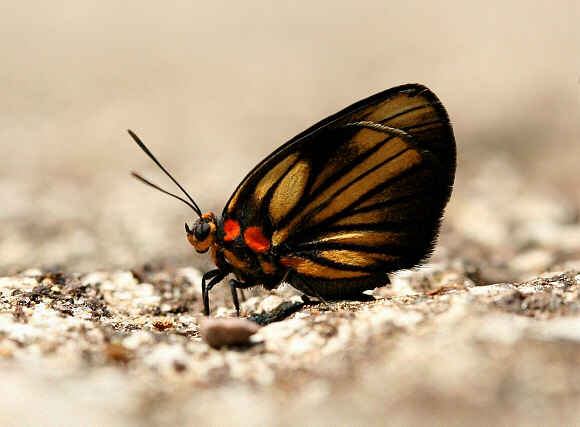
Introduction
Almost all neotropical Theclinae species are placed in the Eumaeini. The tribe is not particularly well represented in collections, so until fairly recently a high percentage remained unstudied, and were inappropriately filed away in the ‘convenience’ genus Thecla. Many taxonomists have attempted to rationalise the systematics of the Eumaeini, the most recent being Robbins who published a revision in 2004, reclassifying the taxa into 83 genera. Currently there are 1058 known species. Taking into account their small size, secretive behaviour, and the great similarities between many species, it is estimated that about another 200 species probably remain to be discovered.
The genus Ipidecla comprises of 3 species: miadora, crepundia and schausi. These tiny butterflies have earthy brown uppersides which in males have a metallic sheen extending across the basal two-thirds of the forewings. In crepundia the sheen is steely grey, and in miadora it is turquoise. In the case of schausi the sheen is deep sky blue and covers the hindwings as well as the forewings.
The undersides are sexually dimorphic – in miadora both sexes are grey-brown with dark veins, but females in addition have a bright orange patch at the base of the wings. The underside of crepundia males are white with black veins, and females have a red spot at the wing bases. Males of schausi are earthy brown with black veins, while the females are ochreous with black veins, and with a red spot at the base of each wing.
Ipidecla schausi is the most widely distributed species, distributed from Mexico to Brazil, Peru and Paraguay.
Habitats
This butterfly is found in rainforest and humid deciduous forest at elevations between 200-800m.
Lifecycle
To be completed.
Adult behaviour
The butterflies are usually encountered as singletons, perching on boulders or foliage, or nectaring at Eupatorium flowers.
